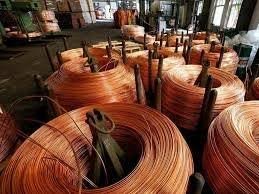#FreeportIndonesia #IndonesiaExportBan #CopperMining #MiningEconomics #SmelterInvestment #GovernmentRevenue #MineralPolicy #MiningPermit
Freeport Indonesia, a leading copper miner under the control of mining behemoth Freeport McMoran, has recently sounded the alarm over Indonesia’s decision to enforce an export ban on copper concentrate come June. This move by the government is primarily aimed at encouraging miners to invest in local smelting facilities, thereby enhancing the value of Indonesian exports and increasing the revenues generated from these activities. However, Freeport Indonesia, with the government holding a majority stake, is pushing for a relaxation of this ban. According to the company, their Gresik smelter is not expected to operate at full capacity by the deadline, which could lead to a significant decline in state revenues—to the tune of $2 billion, based on current market prices.
This concern was raised during discussions with Indonesian President Joko Widodo, attended by Freeport McMoran’s top brass, including chairman Richard Adkerson and incoming CEO Kathleen L. Quirk. The Freeport executives underscored the financial ramifications of halting copper concentrate exports on the country’s earnings and highlighted efforts to ramp up the Gresik smelter’s operations. Projected to be completed by May, the smelter is expected to start running the following month, albeit not reaching its full operational capacity until later in 2024. This timing mismatch between the smelter’s operational readiness and the export ban commencement has sparked intense negotiations and discussions at the highest levels of government and industry.
President Widodo has emphatically stated the government’s intent to wrap up all negotiations with Freeport by June, indicating a crucial juncture for the future of Indonesia’s mining and export strategy. Should the ban be rigidly enforced without consideration for smelters that are not yet fully operational, Freeport cautioned it might have to slash ore production by 40% this year. This situation not only highlights the complexities in balancing national development goals with industry capacities but also underscores the intricate web of economic dependencies, including tax revenues and employment, tied to Indonesia’s mining sector.






Comments are closed.